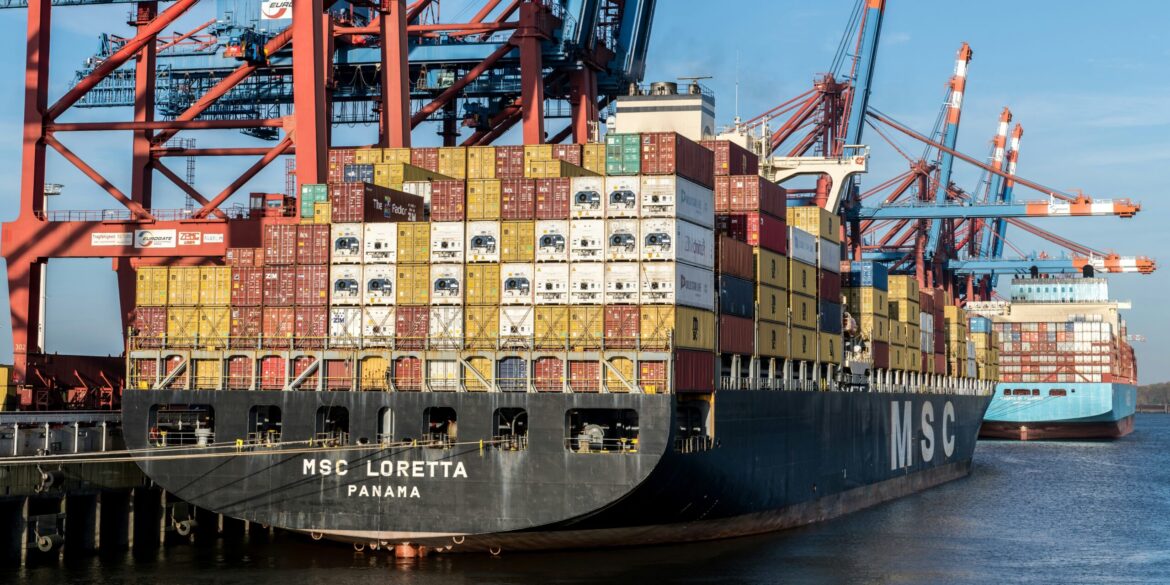A growing number of multinational companies are sounding the alarm over the financial and operational disruptions caused by recent expansions in U.S. tariffs. According to an in-depth analysis of company filings and earnings disclosures, dozens of firms have cut or withdrawn forward-looking guidance due to the impact of elevated trade duties, particularly those affecting technology and manufacturing exports. The data, compiled by Reuters and corroborated by corporate announcements, signals increasing strain across industries as businesses grapple with rising costs, altered supply chains, and a shifting global trade landscape.
More than 60 companies, ranging from automotive giants to smaller industrial manufacturers, have publicly acknowledged the negative implications of U.S. tariffs on their revenue forecasts. The collective earnings impact from these tariffs is estimated to exceed $34 billion for the year. For many firms, the rising costs tied to U.S. trade policy have forced them to pass expenses on to consumers through price hikes, relocate parts of their manufacturing processes outside the United States, or reduce capital spending in U.S.-based operations.
One of the most prominent examples comes from the automotive industry. In May, Ford Motor Company announced it was suspending its full-year earnings guidance, citing an estimated $1.5 billion in tariff-related costs. The company emphasized that these expenses, stemming from higher import duties on vehicle components and materials, were creating significant uncertainty in forecasting profitability. Likewise, German carmaker Audi, a subsidiary of Volkswagen Group, slashed its revenue and margin expectations in July, attributing the revisions to new U.S. tariffs and internal restructuring costs. These cases illustrate how even well-capitalized firms are struggling to navigate the unpredictable terrain of international trade policy.
Smaller industrial players have been equally affected. In Switzerland, manufacturing group OC Oerlikon reduced its full-year forecast, explicitly citing tariff burdens as a key factor. Executives at the company noted that a looming 39 percent tariff on goods exported to the U.S. was already impacting order volumes and deterring clients from committing to long-term contracts. Similar stories are emerging across Europe and Asia, where exporters reliant on the U.S. market are reconsidering their investments and operational strategies in light of increased protectionism.
At the strategic level, companies are adapting by reassessing global supply chains and trade routes. Some are shifting production to countries not directly affected by U.S. tariffs, while others are exploring nearshoring options to maintain access to North American consumers. In several cases, manufacturers have begun to source components from alternative suppliers in lower-tariff jurisdictions. Many firms are also placing greater emphasis on trade-risk management, with some investing in new tools and analytics to monitor evolving tariff regimes.
A recent survey conducted by the Thomson Reuters Institute among global trade professionals found that roughly one in four U.S.-based companies believed their exports were directly threatened by existing or potential tariffs. Nearly 76 percent of respondents expected trade barriers to remain a long-term feature of U.S. economic policy, regardless of future political shifts. This has accelerated moves toward building supply chain resilience, diversifying vendor bases, and revisiting contract structures to allow for tariff-related contingencies.
For U.S. policy-makers, the consequences of these shifts are complex. While the intent behind tariffs is often to protect domestic industries from unfair foreign competition or intellectual property theft, the reality is more nuanced. When U.S. firms face higher production costs, lose market share abroad, or move operations overseas, the broader goal of boosting American competitiveness may be undermined. Economists have long debated the effectiveness of tariffs as a trade tool, and the current wave of corporate concern adds new urgency to the question of whether the policy’s benefits outweigh its disruptions.
Another complicating factor is the retaliatory nature of global trade. Several nations affected by U.S. tariffs have responded in kind, imposing their own duties on American exports. This tit-for-tat dynamic has created a challenging environment for firms operating internationally, especially in sectors like agriculture, automotive, and advanced manufacturing, where margins are already tight. Some European companies have indicated they may reduce or pause investment in U.S. production facilities if the tariff climate does not improve, which could have long-term implications for American job creation and industrial development.
Looking forward, companies are emphasizing the need for flexibility in both financial planning and operations. Corporate strategies now increasingly include contingency planning for trade volatility, and many executives report that until there is more predictability in U.S. trade policy, they will be hesitant to issue detailed forward guidance or make major long-term capital investments. The use of dynamic pricing, modular supply chains, and geographically distributed manufacturing footprints are becoming standard practice among global firms seeking to mitigate the risks posed by economic nationalism.
In sum, the expansion of U.S. tariffs is no longer a theoretical concern—it is a tangible force shaping the decisions of major businesses across the world. While the aim may be to protect U.S. interests, the resulting uncertainty and added costs are prompting firms to rethink their export strategies and global positioning. Whether this leads to a more resilient U.S. economy or triggers lasting structural shifts away from American production remains to be seen. What is clear, however, is that the business community is increasingly vocal about the need for clarity, consistency, and coordination in trade policy moving forward.

